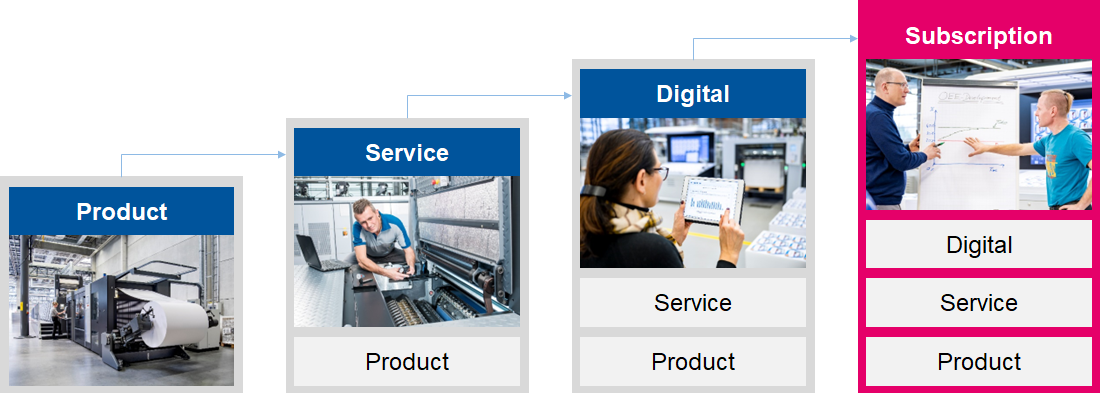Subscription Business
Economic Success with Subscription Business Models
How should subscription business models and their management be designed in mechanical and plant engineering?
How can subscription business models contribute to an increase in customer value, constant optimization and continuous innovation of the service offering?
The Subscription Business group is working to answer these and other questions. The orientation of the research activities follows the premise that companies achieve a revolutionary competitive advantage by transforming themselves from traditional product and service providers to providers of subscription business models. New business models enable companies to translate the technical possibilities of Industrie 4.0 into economic success. The basic principle of a subscription business is to offer customers access to a constantly improving service in return for regular payments instead of a one-off sale of products or services. Subscription business models consistently focus on customer benefits. They are particularly effective when customers are not only granted access to a service, for example the availability of a machine, but the provider also achieves a permanent increase in performance.


